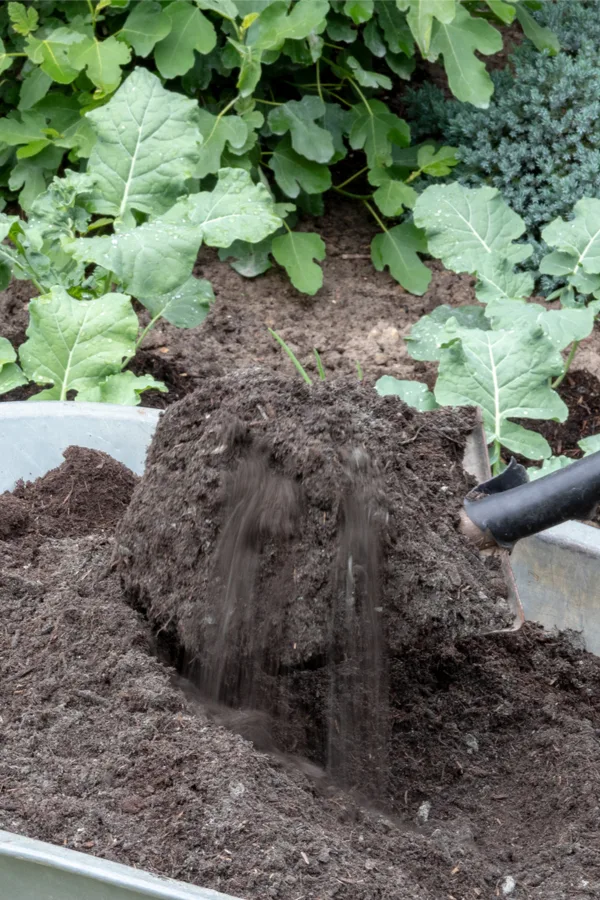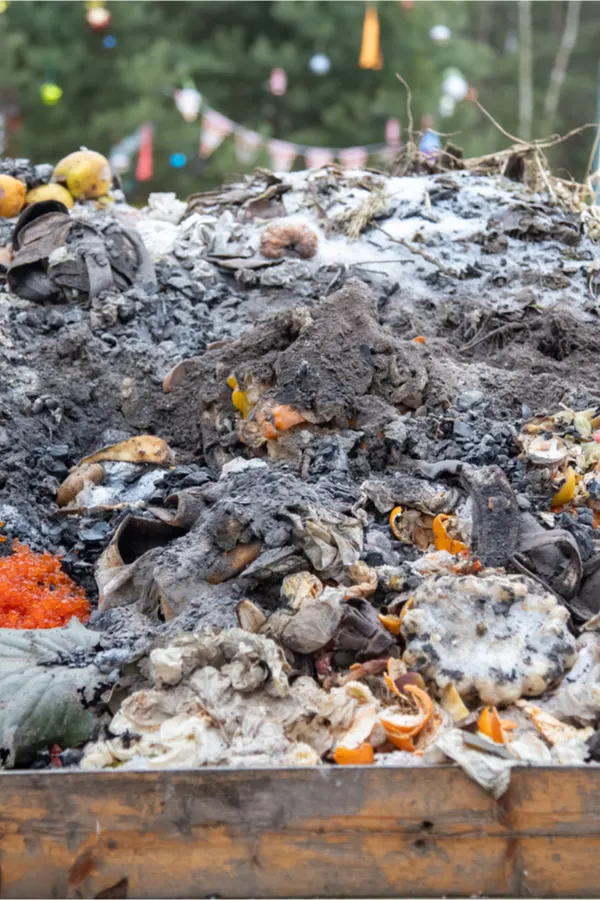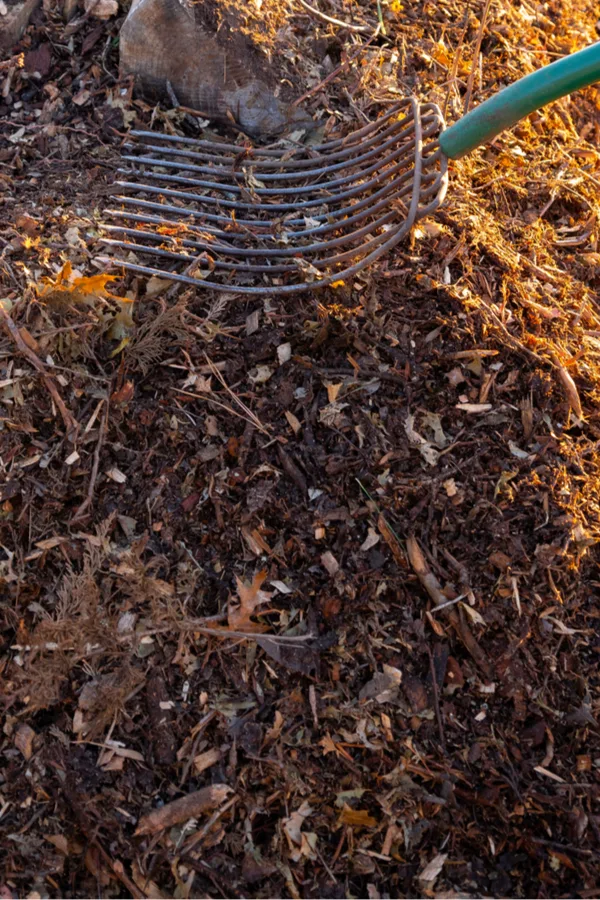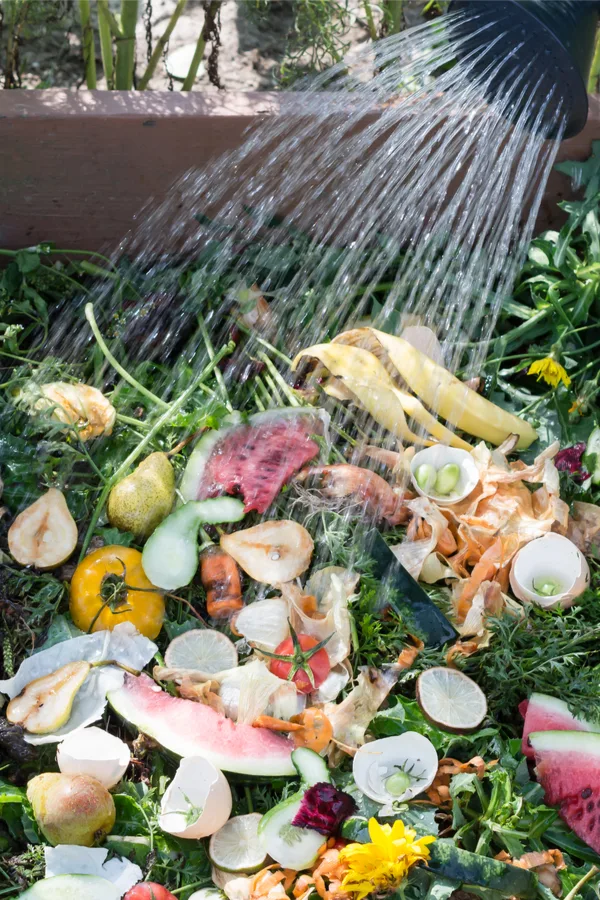When it comes to making great compost in quick fashion for your garden, flowerbeds and more – you can have a great deal of success simply by avoiding four of the most common composting mistakes that many home gardeners make.
Making homemade compost is an incredible way to power your flowers, vegetables, shrubs and trees. Not only is compost full of minerals and nutrients, compost is also teeming with beneficial bacteria and microorganisms as well.
Together, all of that goodness helps turn ordinary soil into a super-charged, humus-filled powerhouse. And that is exactly why it’s so important to have a hard-working home compost pile to make as much as you can as quickly as you can!

There is nothing more frustrating for a home gardener than a compost pile that doesn’t break down in a timely fashion. A poor compost pile can be more than just frustrating, it can also often be unsightly, smell badly – and attract more than its fair share of vermin and pests.
With that in mind, here is a look at four of the most common issues that can occur in a home compost pile – and how to avoid them to create a hard working compost pile.
4 Common Composting Mistakes – And How To Avoid Them!
#1 Not Adding The Proper Mix of Materials
By far, the single biggest mistake made in home compost piles is having the wrong mix of materials. To break down fast, a compost pile needs to have the right mix of carbon and nitrogen based materials.
Carbon materials are more dry-based materials. They do not serve to instantly heat up a pile, but do break down to give back their nutrients. Carbon materials include straw, dead grass, sticks, twigs, leaves, etc.
Nitrogen materials are more wet or green. They include green grass, vegetable peels, manure, coffee grounds and fruit scraps and rinds. Nitrogen materials are what helps to generate heat in a pile.

To have a pile that decomposes well, you need to have a ratio of about 4 parts carbon to one part nitrogen. If there is too much carbon and little nitrogen, a pile can’t heat up. If there is too much nitrogen and not enough carbon, a pile can become overly wet and mushy, and again, no heat will occur.
As an example : a giant pile of leaves can take years to decompose. But blend it with a good ratio of nitrogen materials, and it can become great compost in as little as 3 months!
Just remember to try to keep your pile close to the range of four (4) parts carbon, and one (1) part nitrogen. It doesn’t have to be exact, but the closer to the ratio – the faster you will make compost!
#2 Failing To Turn The Pile – How To Avoid The 4 Most Common Composting Mistakes
Without oxygen, a compost pile can’t generate heat. And, without heat, decomposition will slow to a crawl. The result? A stagnant, poor performing pile.
Unfortunately, without turning your pile on a consistent basis, the center of the pile becomes void of oxygen. But by flipping and turning a pile, oxygen is sent back into the core. And as it does, decomposition and heating of the pile can continue at full strength.

The easiest way to turn a pile is to use a pitchfork. It allows you to flip the materials, taking the outer and cooler remnants and placing them in the middle of the pile. And as you flip, you add more and more air to the mix.
The more frequently you turn your pile, the better. Once a day is ideal for making fast compost. But at the very least, turn it at least a minimum of twice a week to keep oxygen supplied to the core. One final advantage to turning often is that the constant air keeps odors to a minimum.
#3 Having A Pile Too Wet Or Too Dry – How To Avoid The 4 Most Common Composting Mistakes
Much as a compost pile needs oxygen to work, it also needs moisture. But, and here is the kicker, not too much moisture. Having your pile at an ideal moisture level is critical to keep the decomposition process in motion.
As a rule of thumb, materials in a perfectly balanced pile should feel like a well wrung out sponge. Not too wet, not too dry – but just slightly damp.

A pile that is too wet will unfortunately snuff out any oxygen. A wet pile is usually a more odorous pile, as the materials become slimy and slick. If your pile is too dry, simply add water to increase activity. For wet piles, add more dry carbons. And if you are getting too much rain, simply cover it to keep it from becoming soaked.
If you are experiencing a lot of rain, you can cover your pile to keep it from becoming too moist. And if you are experiencing a long dry spell, add water as you flip your pile.
#4 Adding Materials That Cause Major Issues – How To Avoid The 4 Most Common Composting Mistakes
Another big issue that will cause all kinds of issues for a home compost pile is adding materials that should be never be placed in a pile.
A compost pile can only be as good as the materials that are placed into it. Although it is true that nearly everything will eventually decompose, there are some things that should never be added to a backyard pile.
At the top of that list are meat and oily products. Although scraps of meat will indeed compost over time, adding them to a home pile can create a whole slew of issues. For starters, meat products can create a pile with an incredibly rancid smell.
If you have ever taken a whiff of spoiled meat, you know exactly how bad it can be. Even worse, these horrific odors also attract mice, rats, raccoon and other pests and vermin.
Listen In To Our Podcast Below On Making Great Compost!
In addition to excluding meat, cooking oil and oily substances should be left out as well. Not only do they create offensive odors, they also keep oxygen and water from absorbing into the pile. Both of which happen to be key elements for getting a pile to decompose.
Avoid Pet Feces – How To Avoid Common Composting Mistakes
The manure of cats and dogs should always be left out of a pile as well. Pet feces can carry harmful pathogens that can pass through to the soil and your plants.
It is, however, more than okay to add the manure of farm animals. Chicken, rabbit, horse, cow, goat and even sheep manure are all great additions. Not only do they add a multitude of nutrients, they can heat up a pile in quick fashion!
Diseased Plants & Seed Cores – How To Avoid Common Composting Mistakes
When adding materials to your pile, always refrain from adding diseased plants or the seed cores from your garden or flowerbed plants.
Most backyard compost piles fail to reach a center core that is hot enough to kill pathogens and disease. Without high enough temperatures in the core of a pile (140°+), any soil born disease that is present can easily pass through to new plants.

That same hot temperature is also important to kill the seeds of weeds, vegetables and flowers. That is exactly why you do not want to toss whole tomatoes, peppers, or seed heads from flowers into the pile. See : Should You Put Weeds Into A Compost Pile
Unfortunately, all of those will pass through to the compost, and become a weeding nightmare for your where ever you use that compost next year. Always chop out or remove seeds heads before placing plants into the pile – it can save big headaches later!
Here is to avoiding the most common composting mistakes – and making great compost!
Follow Our Facebook Page For Great Gardening Tips And Advice! This Is My Garden Facebook Page
This Is My Garden is a garden website created by gardeners, for gardeners. Jim and Mary Competti have been writing gardening, DIY and recipe articles and books and speaking for over 15 years from their 46 acre Ohio farm. They publish three articles every week, 52 weeks a year. Sign up today to follow via email, or follow along!
